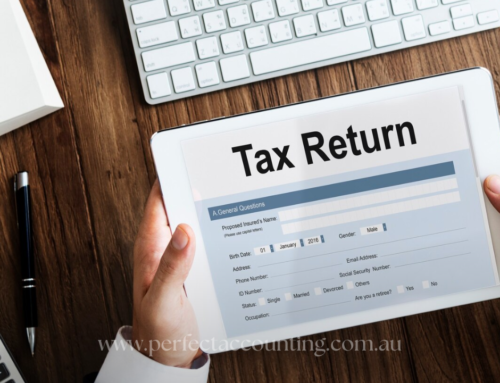Running a business is exciting, but let’s be honest—it can also get overwhelming, especially when it comes to handling numbers and government forms. If you’re a small business owner in Australia, there’s a good chance you’ve heard the term BAS bookkeeping thrown around. But what exactly is it, and why does it matter?
Let’s break it down in plain English—because finances shouldn’t be scary.
What Is BAS Bookkeeping?
BAS stands for Business Activity Statement, a form submitted to the Australian Taxation Office (ATO) to report and pay your business taxes. This includes:
-
GST (Goods and Services Tax)
-
PAYG (Pay As You Go) withholding
-
PAYG instalments
-
Other tax obligations
In simple terms, BAS bookkeeping is the process of recording and preparing your business’s financial data accurately so that you can submit this BAS form to the ATO.
It’s not just about keeping receipts in a shoebox anymore. Done right, it keeps your business compliant and gives you peace of mind.
Why Is BAS Bookkeeping Important?
Let’s say you run a small café in Sydney. You’re busy making coffee, managing staff, and keeping customers happy. Then one day, a letter from the ATO lands in your mailbox. Your BAS is overdue, and you’re being fined.
Sound stressful?
That’s exactly why BAS bookkeeping is critical—it helps you stay on top of your legal requirements and avoid unnecessary penalties. More importantly, it shows you exactly where your business stands financially.
A True Story: Lessons from a Local Florist
Meet Sarah, a florist in Melbourne. When she first launched her business, she handled everything herself—flower arrangements, customer service, even the books. It worked for a while, but tax season hit hard.
“I had no idea how much GST I owed,” she confessed. “I was panicking because I hadn’t been tracking anything properly.”
Eventually, Sarah hired a professional BAS bookkeeper, and things turned around. Not only did she become compliant again, but she also discovered she was eligible for GST credits, which saved her hundreds of dollars.
A Step-by-Step Guide to BAS Bookkeeping
Whether you’re a DIY enthusiast or plan to hire help, here’s how to manage BAS bookkeeping like a pro:
1. Register for GST (if applicable)
First, check if your business needs to register for GST. If your annual turnover is $75,000 or more, it’s mandatory.
You can register online here.
2. Choose the Right Bookkeeping Software
Use tools like Xero, MYOB, or QuickBooks to track income, expenses, and payroll. These platforms are BAS-friendly and help reduce human errors.
3. Track Income and Expenses Consistently
Record every transaction—sales, supplier payments, staff wages, etc. Doing this regularly means no scrambling at BAS time.
4. Reconcile Bank Transactions
Make sure your records match your bank statements. This step helps catch errors and ensure accuracy.
5. Prepare and Lodge Your BAS
You can lodge your BAS:
-
Online through the ATO portal
-
Through your BAS agent
-
Via your accounting software
If you’re not confident, it’s smart to get a pro involved—like a registered BAS agent or bookkeeper.
Pro Tip: Use a Trusted Expert Like Perfect Accounting PTY Ltd
Here’s where it gets easier.
Let Perfect Accounting PTY Ltd take the pressure off. As experienced Accounting Agents, they specialize in BAS bookkeeping, GST reporting, and ATO compliance. Their friendly team works with small businesses across Australia and truly understands what you need.
Why Choose Perfect Accounting?
-
Registered BAS and Tax Agents
-
Expert in small business compliance
-
Affordable and transparent pricing
-
Fast turnaround on BAS lodgments
-
Personalized financial advice
Visit www.perfectaccounting.com.au and book a free consultation today.
Common BAS Bookkeeping Mistakes (And How to Avoid Them)
❌ Mixing personal and business expenses
Keep separate bank accounts and use bookkeeping software to track only business-related items.
❌ Forgetting to claim GST credits
You might be entitled to claim back GST on business expenses—don’t leave money on the table!
❌ Missing deadlines
BAS is usually due monthly or quarterly. Set reminders or let your bookkeeper handle it.
How Often Do You Need to Lodge BAS?
Depending on your business size and turnover, BAS is lodged:
-
Monthly
-
Quarterly
-
Annually
The ATO will notify you of your reporting cycle when you register for GST.
Here’s a full guide from the ATO on deadlines and payment options.
DIY vs Hiring a BAS Bookkeeper: Which Is Better?
If you’re confident with numbers and have the time, doing your own BAS bookkeeping can work—especially with modern software.
But let’s be honest: most small business owners would rather focus on growth, not GST codes.
Here’s a quick comparison:
| Feature | DIY | Hiring a Pro (like Perfect Accounting) |
|---|---|---|
| Time Required | High | Low |
| Risk of Errors | Medium to High | Very Low |
| Compliance Accuracy | Depends on your knowledge | Expert-Level |
| Peace of Mind | Low | High |
Final Thoughts: Why It Pays to Get BAS Bookkeeping Right
Whether you’re a sole trader, startup, or small business, BAS bookkeeping isn’t just paperwork—it’s the backbone of your financial health. Done right, it saves you money, reduces stress, and keeps your business thriving.
And the good news? You don’t have to do it alone.
Let Perfect Accounting PTY Ltd take the weight off your shoulders so you can focus on what you do best—running your business.
Get in touch today for expert BAS support you can trust.
Need help now? Call Perfect Accounting or visit their website to book a no-obligation consultation.







